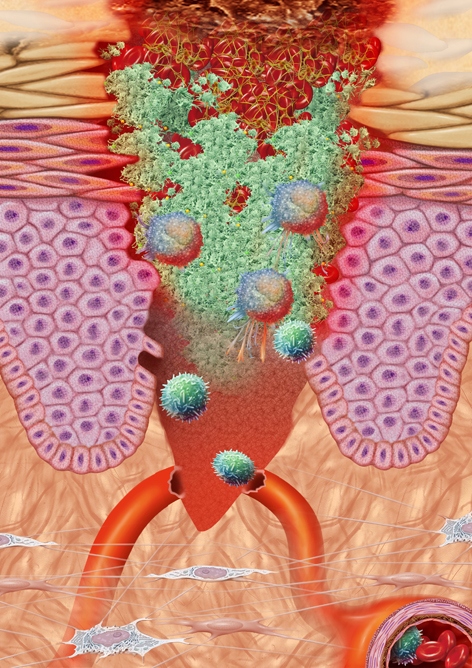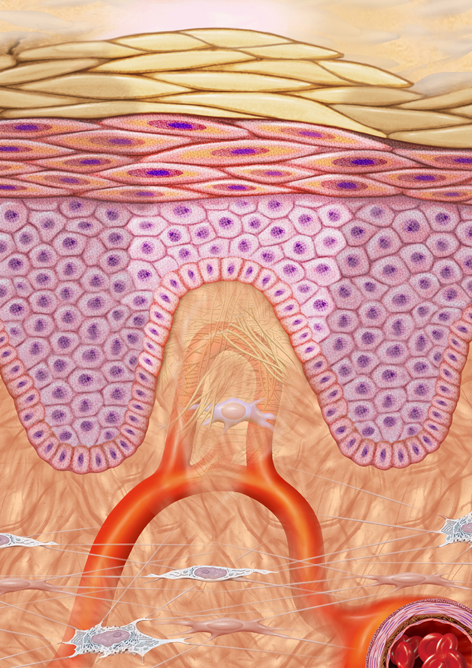Wound Healing
Wound healing is a complex and dynamic process that restores the integrity of the skin and protects the body against harmful external conditions. Wound healing comprises several phases [Reinke, Sorg 2012]. Hemostasis occurs directly after injury, when blood vessels narrow, blood coagulation stops the bleeding, and clots fill up the tissue defect. An inflammatory reaction is activated in parallel, the duration of which depends on the type of the wound (e.g., infected, necrotic). During the granulation phase, granulation tissue is formed and blood supply is restored. In addition, fibroblasts produce extracellular matrix components including collagen III. In the last phase (remodeling) which lasts up to one year after the injury, the new tissue is remodeled and the wound fully closes.
Whereas superficial wounds are closed by new epithelium, deep or necrotic wounds develop scars. Scar formation strongly depends on the intensity of the inflammatory reaction, the remodeling of extracellular matrix, and the formation of collagen III [Iismaa et al. 2018].
Clinical Studies
A randomized, placebo-controlled study analyzed the influence of Bioactive Collagen Peptides on wound healing in individuals with normal healing processes compared to patients with compromised wound healing. The first group consisted of 22 women between the ages of 24 and 67 years, who had undergone dermatological surgery. Of these, 12 women received 5 g Bioactive Collagen Peptides daily for 45 days. The second group included 20 men and women between the ages of 28 and 82 years who suffered from a poorly healing wound and an additional underlying disease such as diabetes, which is known to cause wound healing disorders. After the debridement of the wound, 10 patients received 10 g Bioactive Collagen Peptides daily for 90 days. Antibiotics were also administered in the case of an inflammation.
The results were evaluated by four experienced physicians. In both groups, the patients treated with Bioactive Collagen Peptides showed a good or very good outcome regarding wound healing. In contrast, the respective placebo groups (without Bioactive Collagen Peptides) showed suboptimal or bad results in a considerable proportion of the cases [Knefeli, Durani 2017].
This study provides a first indication that Bioactive Collagen Peptides are beneficial in wound healing. The authors hope to confirm these results in a larger study.
Source of figure: Frank Geisler (MediDesign)
Last update: May 2022

